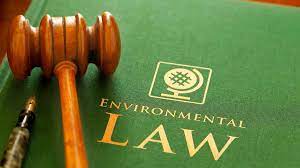
Navigating the Environmental Landscape: An Overview of Florida Environmental Law
Florida, known for its stunning beaches, diverse ecosystems, and abundant wildlife, places a strong emphasis on environmental conservation and protection. The state’s commitment to safeguarding its natural resources is reflected in its comprehensive environmental laws. These laws cover a wide range of issues, including water quality, air pollution, land use, and wildlife protection. In this article, we will explore the key aspects of Florida environmental law and how they contribute to the preservation of the state’s unique and fragile ecosystems.
Water Resources and Quality:
Florida’s water resources are crucial to the state’s economy, tourism, and overall well-being. The Florida Environmental Reorganization Act established the Department of Environmental Protection (DEP) to oversee the state’s environmental policies, including those related to water quality. The state enforces strict regulations to prevent pollution and degradation of its rivers, lakes, and coastal waters.
The Clean Water Act (CWA) is a federal law that works in conjunction with Florida’s environmental regulations to set water quality standards. The Florida Department of Environmental Protection issues permits and closely monitors discharges from industries, wastewater treatment plants, and other sources to ensure compliance with water quality standards.
Land Use and Conservation:
Florida faces unique challenges due to rapid population growth and urbanization. Balancing development with conservation is a key focus of the state’s environmental laws. The Florida Land Use and Environmental Dispute Resolution Act aim to address conflicts arising from land development while considering environmental concerns.
The state’s environmental laws encourage responsible land use planning, including zoning regulations and conservation easements. Additionally, programs like Florida Forever allocate funds for the acquisition and preservation of environmentally sensitive lands, ensuring the protection of critical habitats and biodiversity.
Air Quality and Pollution Control:
Florida’s commitment to environmental stewardship extends to air quality and pollution control. The Florida Air and Water Pollution Control Act empowers the DEP to regulate and monitor air quality to protect public health and the environment. The state adopts federal standards outlined in the Clean Air Act to control emissions from industries, vehicles, and other sources.
Florida’s air quality management program focuses on reducing pollutants like sulfur dioxide, nitrogen oxides, and particulate matter. The state’s stringent regulations aim to minimize the impact of industrial activities on air quality and public health.
Wildlife Protection:
Florida’s diverse ecosystems support a wide array of plant and animal species, many of which are endangered or threatened. The Florida Endangered and Threatened Species Act provides legal protection for these imperiled species by establishing conservation measures and habitat preservation efforts.
The Florida Fish and Wildlife Conservation Commission (FWC) plays a pivotal role in enforcing wildlife protection laws. The agency oversees hunting and fishing regulations, habitat conservation programs, and efforts to manage invasive species that threaten native flora and fauna.
Florida’s environmental laws reflect a commitment to sustainable development, conservation, and the protection of its unique ecosystems. The state recognizes the delicate balance between economic growth and environmental preservation, striving to ensure that future generations can enjoy the natural beauty that defines the Sunshine State. As environmental challenges evolve, Florida’s legal framework will continue to adapt, playing a crucial role in safeguarding the state’s natural resources for years to come.
Environmental laws in Florida are multifaceted, addressing various challenges posed by climate change, sea-level rise, and extreme weather events. The state’s vulnerability to hurricanes and storms underscores the importance of comprehensive policies to mitigate and adapt to the impacts of climate change.
Climate Change Mitigation and Adaptation:
Florida has recognized the need to address climate change and has implemented measures to reduce greenhouse gas emissions. The Florida Energy and Climate Commission, created in 2008, focuses on promoting energy efficiency, renewable energy sources, and strategies to mitigate climate change impacts. Additionally, the Resilient Florida program aims to enhance the state’s resilience to sea-level rise and other climate-related challenges.
Wetland Protection:
Wetlands play a crucial role in Florida’s ecosystems, providing habitat for wildlife, controlling floods, and improving water quality. The state’s environmental laws include the Wetland Resource Management Program, which regulates activities in and around wetlands. Permits are required for projects that may impact wetland areas, ensuring responsible development that minimizes harm to these vital ecosystems.
Environmental Permitting:
Florida’s environmental permitting process ensures that activities with potential environmental impacts undergo thorough review and adhere to applicable regulations. The DEP issues permits for activities such as construction, industrial discharges, and waste management. This permitting system helps strike a balance between development and environmental conservation.
Storm-water Management:
To address water runoff and prevent pollution of water bodies, Florida has established stormwater management regulations. These regulations require the implementation of best management practices (BMPs) for controlling storm-water runoff from urban and industrial areas. By managing stormwater effectively, the state aims to protect water quality and prevent the degradation of aquatic ecosystems.
Environmental Enforcement and Compliance:
Enforcement of environmental laws is crucial to maintaining their effectiveness. The DEP and other agencies have enforcement mechanisms in place to address violations of environmental regulations. Penalties and fines may be imposed on individuals or entities that fail to comply with environmental laws, emphasizing the state’s commitment to holding polluters accountable.
Public Involvement and Education:
Florida recognizes the importance of public participation in environmental decision-making. The state encourages public involvement through hearings, comment periods, and community engagement initiatives. Additionally, environmental education programs aim to increase awareness and understanding of the importance of preserving Florida’s natural resources.
Florida’s environmental laws form a comprehensive framework designed to protect the state’s unique ecosystems, promote sustainable development, and address emerging challenges such as climate change. As the state continues to evolve, so too will its environmental laws, ensuring a resilient and vibrant natural environment for current and future generations. The ongoing commitment to environmental stewardship reflects Florida’s dedication to maintaining its status as a haven of biodiversity and natural beauty.



